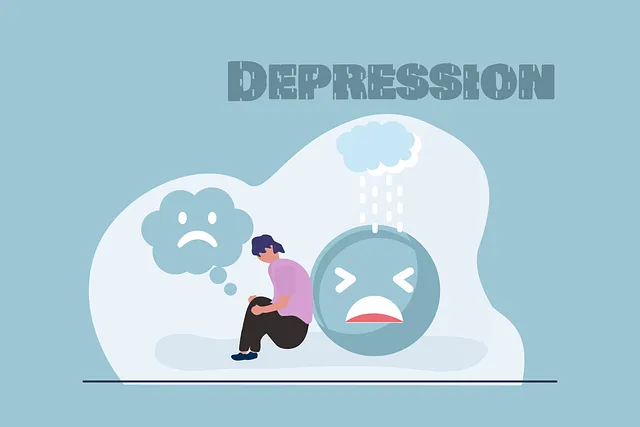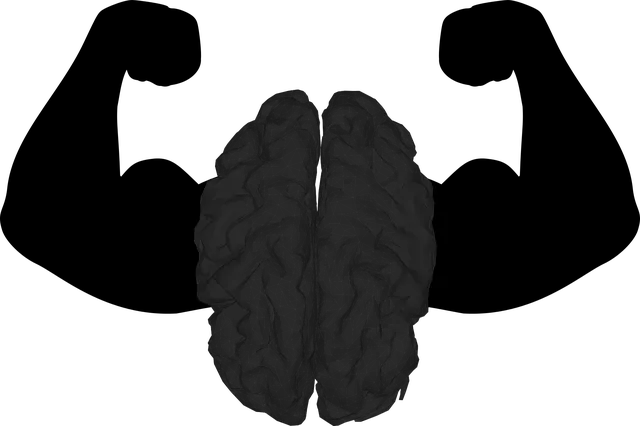The Golden Kaiser Permanente behavioral health center offers a comprehensive approach to mental health care, focusing on integrating social skills and emotional well-being. Through initiatives like group therapy, workshops, and evidence-based programs, the center teaches effective communication, empathy, and conflict resolution techniques. These programs empower patients to build connections, express emotions healthily, and navigate social situations, improving mental health outcomes in a safe, supportive environment. By prioritizing active listening, clear language, compassion cultivation, and practical exercises, the center helps individuals overcome challenges related to depression, anxiety, and schizophrenia, ultimately enhancing overall well-being.
Social skills training is a transformative tool for individuals navigating mental health conditions. This article explores how programs like those offered by the Golden Kaiser Permanente Behavioral Health Center can significantly enhance well-being. We delve into the understanding of social skills, their profound impact on mental health, and the specific challenges faced by those with common mental health conditions in social interactions. Additionally, we provide practical strategies for communication and relationship building, along with real-world exercises to prepare for various social scenarios.
- Understanding Social Skills and Their Impact on Mental Health
- The Role of the Golden Kaiser Permanente Behavioral Health Center in Training
- Identifying Challenges: Common Mental Health Conditions and Social Interaction
- Strategies for Effective Communication and Relationship Building
- Practical Exercises and Real-World Application: Preparing for Social Scenarios
Understanding Social Skills and Their Impact on Mental Health

Social skills are crucial aspects of our daily interactions and play a significant role in shaping our mental health. At the Golden Kaiser Permanente behavioral health center, we recognize that effective communication, empathy, and conflict resolution techniques can significantly impact an individual’s overall well-being. Understanding these social dynamics is essential for managing mental health conditions effectively.
In today’s complex social landscape, individuals with mental health disorders often face challenges in navigating interpersonal relationships. The Community Outreach Program Implementation at Golden Kaiser Permanente aims to empower patients by teaching them vital social skills. Through various initiatives, including group therapy sessions and workshops focused on communication strategies, our center equips individuals with the tools needed to build connections, express emotions healthily, and manage social situations effectively. Moreover, Risk Management Planning for Mental Health Professionals is integrated into these programs to ensure a safe and supportive environment where patients can learn and practice conflict resolution techniques, fostering a sense of belonging and improving their overall mental health outcomes.
The Role of the Golden Kaiser Permanente Behavioral Health Center in Training

The Golden Kaiser Permanente Behavioral Health Center stands as a beacon of hope and healing for individuals navigating mental health challenges. Recognizing the interconnectedness of social skills and emotional well-being, the center has pioneered innovative training programs that empower clients with practical tools. Through a holistic approach, they offer specialized services tailored to address specific needs, incorporating Mind Over Matter principles to foster resilience.
Here, Empathy Building Strategies and Stress Management techniques are seamlessly woven into the fabric of their social skills training. The center’s dedicated team ensures a safe and supportive environment where individuals can learn, grow, and develop meaningful coping mechanisms. By embracing these strategies, Kaiser Permanente aims to transform lives, enabling clients to navigate social interactions with newfound confidence and clarity in the face of mental health conditions.
Identifying Challenges: Common Mental Health Conditions and Social Interaction

Mental health conditions can significantly impact an individual’s ability to engage in social interactions, leading to various challenges in their daily lives. Common disorders such as depression, anxiety, and schizophrenia often manifest symptoms that hinder social skills. For instance, individuals with depression might struggle with motivation and energy, making it hard to initiate or maintain conversations. Anxiety disorders can cause excessive worry and fear in social settings, resulting in avoidance behaviors. These challenges are further exacerbated by the internalized stigma associated with mental health issues, which may discourage affected persons from seeking help or participating actively in social activities.
The Golden Kaiser Permanente behavioral health center recognizes these obstacles and offers specialized programs tailored to addressing them. Through evidence-based practices, clients learn coping skills development that enable them to manage symptoms effectively. The center’s focus on integrating mind over matter principles and promoting positive thinking helps individuals reframe their perspectives and build resilience. These strategies are vital in navigating the complexities of social interactions, fostering meaningful connections, and enhancing overall well-being.
Strategies for Effective Communication and Relationship Building

At the Golden Kaiser Permanente behavioral health center, they recognize that effective communication is a cornerstone for managing and improving mental health conditions. Strategies such as active listening, clear and concise language, and open-ended questions are essential tools to foster meaningful connections and understanding between individuals with mental health challenges and their support networks. By practicing these skills, patients can enhance their relationships, improve self-expression, and develop more effective coping mechanisms.
Relationship building is another vital aspect of holistic mental health care. The Golden Kaiser Permanente behavioral health center promotes compassion cultivation practices to create a supportive environment where individuals feel understood and valued. Encouraging empathy, patience, and non-judgmental attitudes helps in navigating complex emotional landscapes. These approaches, coupled with burnout prevention strategies, ensure that both patients and caregivers can nurture enduring connections, leading to improved mental well-being.
Practical Exercises and Real-World Application: Preparing for Social Scenarios

Practical exercises are integral to social skills training, as they prepare individuals for real-world interactions and help them apply learned techniques in various social scenarios. At the Golden Kaiser Permanente behavioral health center, therapists utilize role-playing, mock conversations, and group discussions to create safe environments where clients can practice communication strategies. These exercises simulate everyday situations like ordering at a restaurant, initiating conversations with strangers, or navigating workplace dynamics, allowing individuals to build confidence and refine their social skills.
Through these practical applications, clients learn to manage their emotions, recognize social cues, and adapt their communication styles accordingly. The center’s focus on cultural sensitivity in mental healthcare practice ensures that exercises are inclusive and tailored to diverse backgrounds, fostering a deeper understanding of societal norms and personal boundaries. This holistic approach, combined with mental wellness coaching programs development, empowers individuals to successfully integrate into social environments, ultimately improving their mood management skills.
Social skills training, facilitated by centers like the Golden Kaiser Permanente Behavioral Health Center, plays a pivotal role in improving mental health outcomes. By addressing common challenges faced in social interactions, individuals with various conditions can develop effective communication strategies and build meaningful relationships. Through practical exercises and real-world application, these programs prepare participants for everyday social scenarios, empowering them to navigate social situations with confidence and fostering a more inclusive and supportive community.


